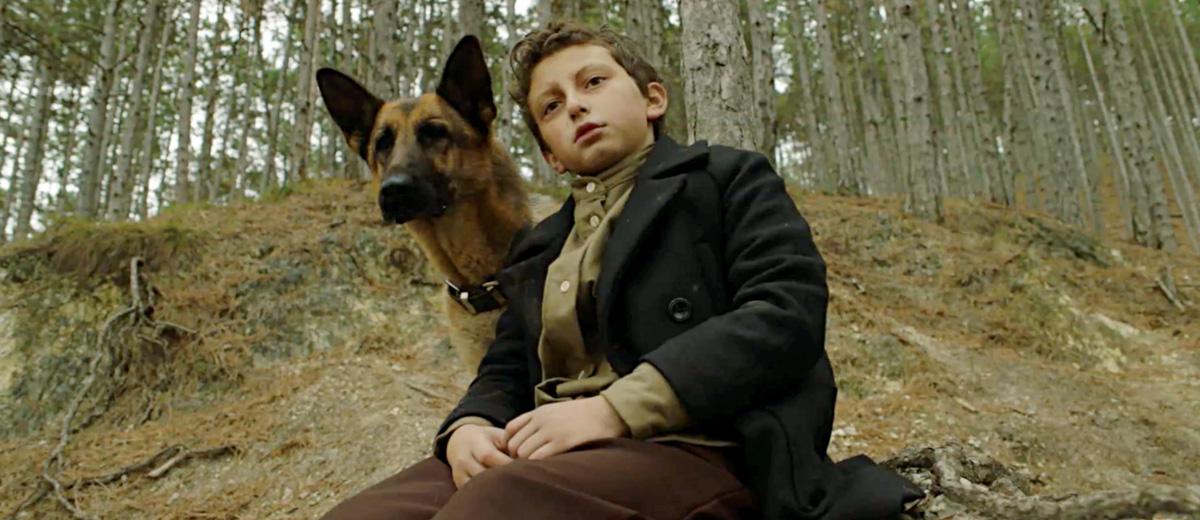By Mark Saldana
Rating: 3 (Out of 4 Stars)
Based on the novel, The Jewish Dog, by author Asher Kravitz, writer/director Lynn Roth adapts this remarkable, fictional story about a loving and loyal German shepherd caught up in the midst of World War II and the holocaust. Roth takes the audience on a dog’s often dangerous, but also confusing, journey from a Jewish family’s beloved house pet to a guard dog for a Jewish concentration camp. Though the movie does stretch reality a bit much at times, it really is difficult not to be moved at all by the mixed emotions the dog feels during this traumatic and stressful time of violence, loss, and perplexity.
The film begins during the 1930s as a caring Jewish family copes with prejudice and hate in Germany. Born as part of a little of German Shepherd puppies, Kaleb soon becomes the highly beloved pet and friend of young Joshua (August Maturo), the youngest child of the story’s Jewish family. As Joshua’s family becomes rather attached to the growing puppies, including Kaleb, Germany passes the Nuremberg Laws which forbades the ownership of pets by Jewish people. This breaks the heart of Joshua’s parents (Ayelet Zurer, Ádám Porogi), as they must give up every single one of their pets. As things further escalate in Germany, the family ends up separated with Joshua being sent alone to one particular camp.
During this time, Kaleb gets sent to a home where the “lady of the house” simply does not want him. Kaleb quickly escapes and ends up struggling with a pack of other strays barely surviving. He eventually ends up getting “rescued” from a dog pound by the German army, seeking smart and fierce dogs to guard their camps. Under the care of German soldier and dog trainer Ralph (Ken Duken), who cares very much for him, but also trains him to attack any Jews attempting to escape from his camp. Kaleb’s training gets put to the test when Joshua arrives to the very same camp where he works and lives.
With Shepherd: The Story of a Jewish Dog, Lynn Roth has created a genuinely moving and compelling film, but struggles a little with the realism of the story’s very real backdrop. Though the movie works mostly well enough to have some emotional impact, it does suffer from some poorly executed melodrama and some, unfortunately, laughable moments. Nevertheless, I still could not completely turn away and dismiss this heartfelt attempt at a remarkable story that does express some genuine complications that dogs could realistically face given the extreme circumstances.
The entire cast delivers some great performances, but it is young actor August Maturo who keeps the movie grounded and heartwrenching as a child caught up with the ugliness and attrocities of World War II. The movie also can boast great work by Ayelet Zurer, Ádám Porogi, Ken Duken, Viktória Stefanovszky, and several others.
This movie is definitely intended for families to experience, and most certainly, discuss afterward. I probably would not recommend this movie for very young children, unless parents are willing to get into a discussion about World War II and the horrors of the Holocaust. This movie is much more appropriate for older children, pre-teens, and teenagers. Obviously, the older the child is, the more likely it is that they have already learned about the historical events in the movie. Though I haven’t given this film a super high rating, I still feel it is worth watching, especially for families who love discussing our world’s history, but also families who have pets near and dear to them.
